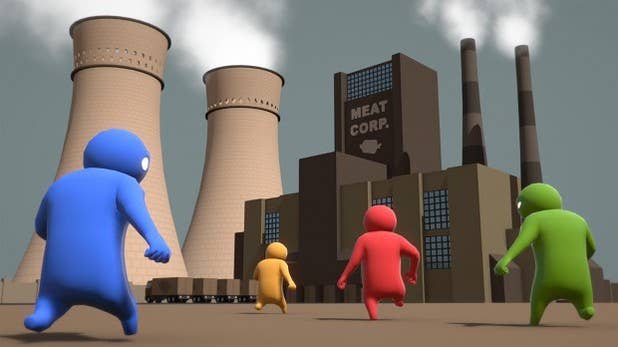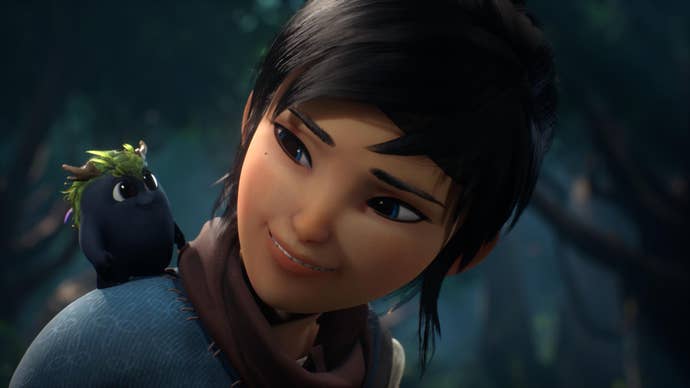It’s a wild time in the world of social media, right? As Twitter runs head-first into a gaggle of technical and policy issues, a new wave of potential users are spreading out and planting roots elsewhere. Some of these newer platforms are niche spaces, whereas others are championed by some of the biggest names – both individual and corporate – in the world of tech.
The video game industry has long used Twitter to communicate with its players. Seen as both as a community-building tool and a direct route to deliver critical updates and technical assistance, publishers and developers alike have harnessed the chaotic power of Twitter for over a decade. So what video game devs think about the current state of Twitter with Elon Musk in charge? We sat down and talked to some at Develop 2023 to find out.
“We don’t really use Twitter anymore,” states Conor Clarke, marketing and communications manager at Gang Beasts developer, Boneloaf. Its multiplayer PvP brawler has been out for nearly a decade now, and has entertained countless spectators online with its particular style of wacky combat.
“That is a conscious decision in that, at the tail end of last year, we saw a lot of changes to the platform thanks to the very high-profile change in leadership that I personally don’t like […] I tried to avoid all that dark stuff, all those algorithms that push Andrew Tate and shit to the front. So I don’t like that at all.”
While developers like Bone Loaf have stepped away from Twitter in this period of turmoil, other platforms have welcomed it with open arms. TikTok especially (as a short-form video platform) has apparently provided great success for the game, despite its aging status.
“What we found is that Gang Beasts is really popular on TikTok! We never really had a presence there, but we had over a billion views there, and we were like ‘wow that’s incredible!’ Obviously TikTok is a younger audience, and we talked to some TikTok people to build our own presence there. It all kind of took off, the discoverability there is amazing.

“You know, all social media companies are evil, and they take all your data. So in some way there’s no way to ethically be okay on these platforms in a sustainable way. But the best of the bad bunch is TikTok, where we have a lot of fun making content for our community.”
A distaste for the current state of Twitter has also been shared by one Mike Rose, CEO of indie publisher No More Robots. Rose was quick to point out stark differences between the Twitter of the past and of the version online today, largely thanks to business decisions made by now-owner Elon Musk.
“He’s just a dickhead, ain’t he?” says Rose. “The thing is that I stupidly built a portion of my business on Twitter. A huge reason why we did so well, especially in the early days of No More Robots, was because I played the Twitter game very well. I could see on days we sold a thousand copies of a game because of a series of tweets. It was very powerful for me. And then, of course, he came along and fucked it all up. And now it’s become pointless for me a little bit.”
As No More Robots’ Twitter account has neither Twitter Blue, or an official company tick, the company’s social media strategy for the platform has taken on something of a laissez-faire tone. Informal and non-business focused. Rose, frustrated, states: “Honestly, I told our amazing social media guy Zayaan a little while ago, ‘don’t fucking worry about it anymore, post whether you want’. So he just posted cats every day.”
But what of the larger developers out there? Whereas smaller developers have a longer legacy of direct community interaction on platforms like Twitter, is there still a sense of lost value in the minds of those from bigger budget companies? Yes, as it turns out. As a creative industry, even those without as much of a direct connection to their community still used it as a source of encouragement.

COO of Emberlab, Josh Grier, spoke to me about the launch period for Kena: Bridge of Spirits, and how social media allowed the studio a window into the game’s reception. “We jumped on Twitter over the game’s coming out. We had a great community manager, and the personal connection to players and the positive feedback we got was hugely helpful for the team leading up to release and post release. It was like; okay, cool, we made something that impacted people and we could see that touch point and that so that would be a shame to lose.”
However, for COO of Arctic7, John Burns (a studio with its own projects yet to release in these uneasy times) there’s nothing to worry about: with decades of experience in the industry, innovation and adaptability is core to his methodology.
“It’s marketing and PR and communication to players,” states Burns. “You’re always needing to innovate. 20 years ago, it was all about, advertising in film, or outdoor advertising, or in print magazine advertising. Nowadays, it’s all about digital and using different channels. And look, digital channels are always changing in terms of what they offer, you know? The market moves.
“Just these last couple of weeks, we’ve seen a new social media platform with Threads right? So that’ll be something, I’m sure.”
The feeling around Twitter appears to be mixed, then; as some developers and publishers mourn the loss of the text-friendly, micro-blogging setup of Twitter, others are excited about what the future holds when it comes to other social media platforms. Twitter may not have the same appeal that it used to, but plenty of industry veterans are happy to go down with the ship. So to speak.
If you’re looking for more developer features from Develop 2023, we’ve got this feature on how develoeprs feel about Game Pass and PS + for you to read!

